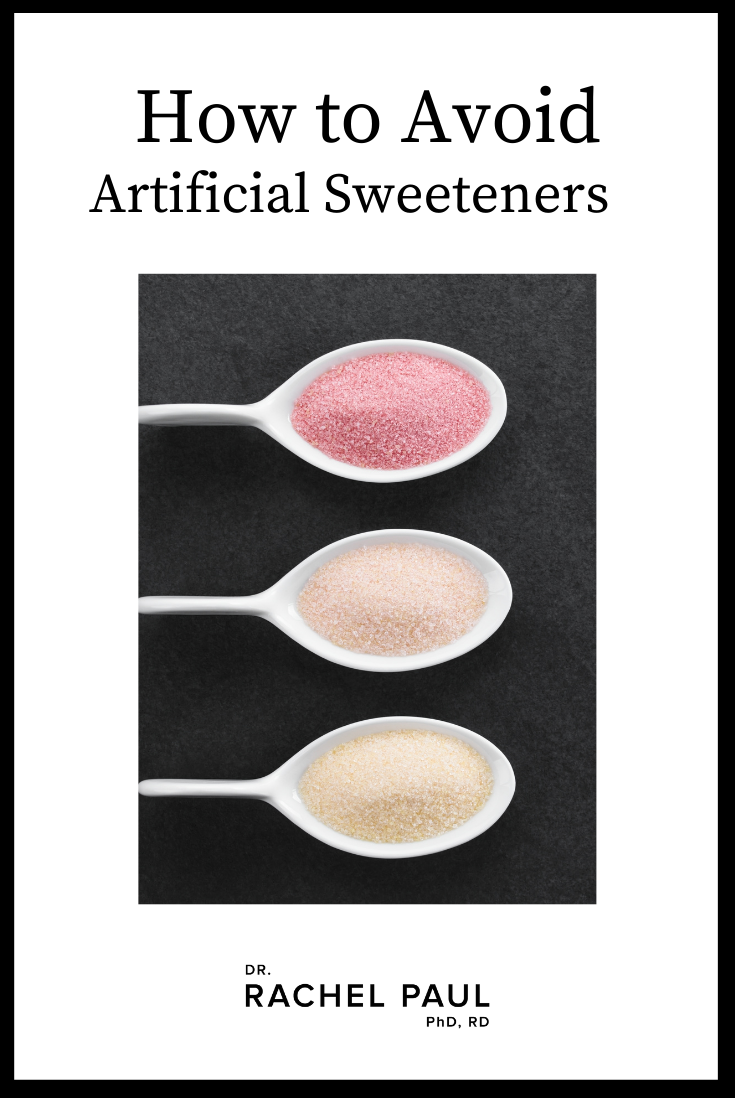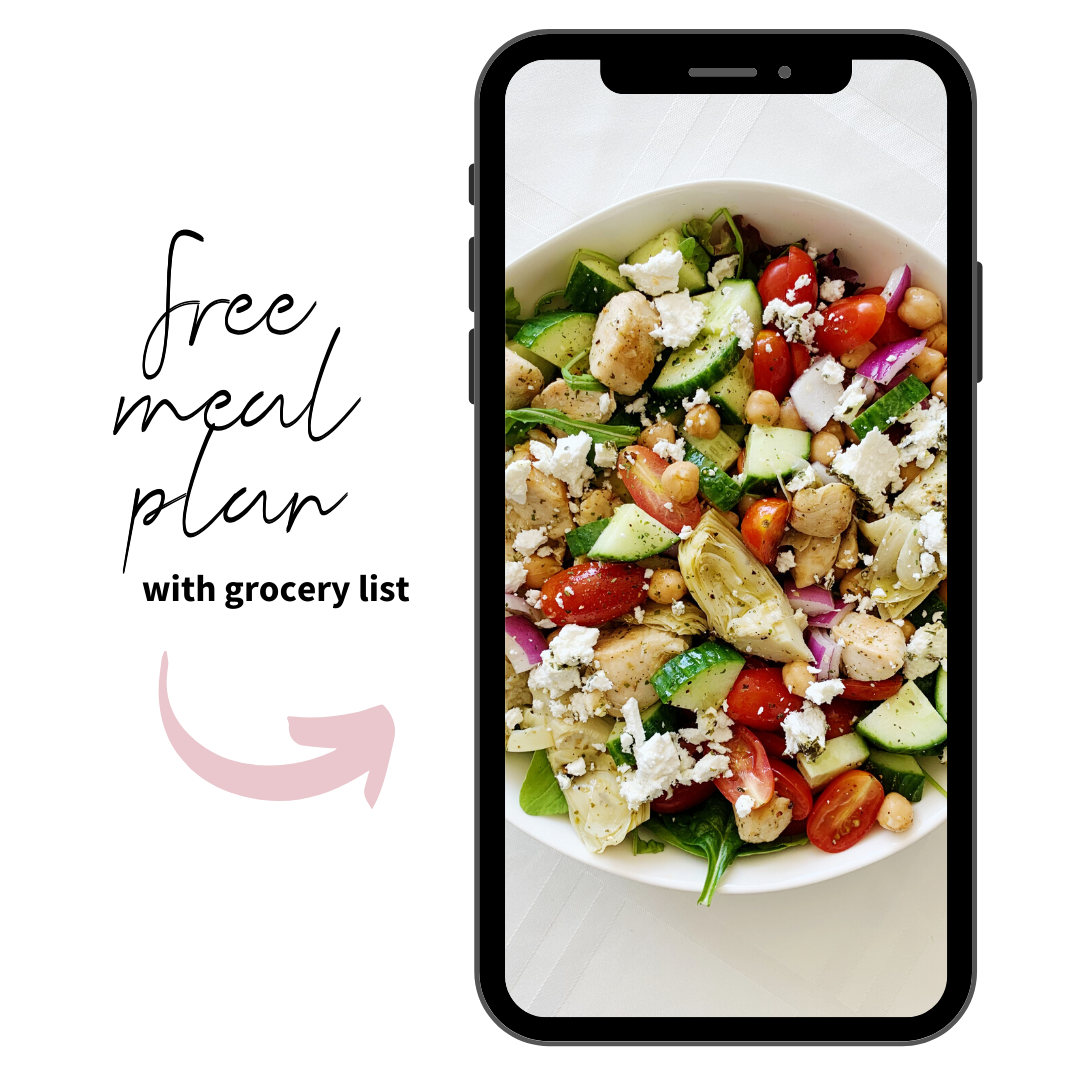How To Avoid Artificial Sweeteners
Artificial sweeteners are, like the name suggests, sweeteners that make drinks and foods sweeter but have no nutritious value. They have a strong sweet taste and are often considered high-intensity sweeteners.
They’re synthetic sugar substitutes that usually have no calories, which makes them appealing to buyers. However, foods labeled as calorie-free and sugar-free is usually a trick to make buyers think they’re buying something healthy - but oftentimes, just because something is calorie-free or sugar-free, doesn’t mean it won’t make you gain weight nor that it’s healthy.
Avoiding artificial sweeteners can help you lose body weight faster (especially since you’ll know exactly what you’re eating), and it’s also a way of guarding your health (and preventing health problems such as type 2 diabetes).
They are found in a variety of foods and beverages, and they are one of the commonly used additives in processed foods.
Another negative aspect of eating or drinking artificial sweeteners is that they contribute to having more cravings, which is obviously not good for your weight loss journey and contributes to weight gain. They can sometimes also harm gut bacteria, which isn’t good for your health. To keep it fair, there are a few benefits of artificial sweeteners, and they are: artificial sweeteners don’t contribute to tooth decay, and they don’t raise your blood sugar levels.
However, avoiding them, or eating them in very small amounts, can really benefit your health and weight loss goals.
So, I’m dedicating this post to giving you some practical and useful tips on how you can avoid artificial sweeteners easily.
How To Avoid Artificial Sweeteners
Know what to avoid
One of the first things you need to do and know in order to avoid artificial sweeteners is to know what to look for and what to avoid.
You can’t avoid them if you don’t know exactly what they are. So, dedicate some time to doing the research in order to know exactly what you need to avoid the next time you go grocery shopping.
Artificial sweeteners include:
Sucralose (also known as Splenda)
This is a calorie free sweetener that is 600 times sweeter than table sugar. Some studies suggest that sucralose has negative effects such as increasing the risk of obesity, tattoo, diabetes, and metabolic syndrome. The food and drug administration considers it safe, but there are conflicting evidence about its long term health effects.
Stevia (also known as Truvia or Sun Crystals)
A sugar substitute that is about 50 to 300 times sweeter than table sugar. Is extracted from leaves of the Stevia rebaudiana plant. Some possible side effects may include nausea, bloating, low blood pressure, hormone disruption. However, the FDA says it is safe in moderation.
Monk fruit (aka Nectresse)
A natural sugar alternative derived from monk fruit or Swingle fruit, which is a herbaceous perennial vine of the gourd family. It is reported to be about 100 to 250 times sweeter than table sugar. Monk fruit is found to be a safer option with many health benefits, and no side effects according to studies. The FDA says it is safe for the general population, including children and pregnant people.
Saccharin (Sweet N’ Low)
This artificial sweetener is 200 to 700 times sweeter than table sugar. Although it has been FDA regulated since 1977, large amounts may negatively affect the bacterial in your gut, and studies have shown that these microbial changes in the intestines can lead to type 2 diabetes, obesity, and rare cases cancer. Some possible side effects may include that bacteria imbalance, and allergies.
Aspartame (also known as NutraSweet and Equal)
This is one of the most studied food additives in the human food supply. It’s 200 times sweeter than table sugar. The FDA considers it safe to consume with than acceptable daily intake amounts (50 milligrams per kilogram of body weight per day).
Acesulfame potassium (Sunett and Sweet One)
Neotame
Acesulfame K or Ace-K is a synthetic sweetener that’s 180 to 200 times sweeter than table sugar. The FDA says it is generally recognized as safe. However, some research suggests the negative impacts include cancer, hormone disruption, and thyroid damage, and lab animals.
Cyclamates
This artificial sweetener is 30 to 50 times sweeter than tables sugar. It has been banned by the Food and Drug Administration since 1969 because it was shown to cause cancer and experimental lab rats.
To make it easier for you, here are some foods and drinks that most commonly include artificial sweeteners:
Diet soda
Regular soda
Energy drinks
Sweet snacks
Sugar-free sweets (as mentioned, food is often labeled as sugar-free to make you want to buy it, when in fact it has artificial sweeteners aka sugar replacements, which are often less healthy than regular sugar)
Candy
Baked goods
Puddings
Canned foods
Jams
Dairy products
Of course, a lot more foods and drinks contain artificial sweeteners, so check everything - not just things on this list. Artificially sweetened food can be something you’d never expect.
Check the label
The main way to avoid artificial sweeteners is to obviously check the label. Every label for every food you’re getting needs to include all of the ingredients - including artificial sweeteners.
So, if you want to avoid consuming them, check the label to see the full list of ingredients. If you can’t remember what they are (as you can see by the list above, the names aren’t that easy to remember), you can make a list on your phone, or write it on a piece of paper, and bring it with you when you go shopping.
That way, you can always know exactly what ingredients to avoid.
Limit processed foods
Many packaged foods and sugar drinks on the market that are labeled as low-calorie, no calorie, low sugar, or no sugar added are often the very items that contain artificial sweeteners that we say we want to avoid. So if you desire to ditch the artificial sweeteners, limit the amount of processed foods you consume on the daily and swap it out for more natural sweeteners like honey or molasses.
Make healthy choices
One of the best ways to avoid artificial sweeteners is to make healthy choices overall.
If you want to be as healthy as possible, you should develop healthy eating habits. And what do healthy eating habits entail? Mostly eating whole foods. And whole foods don’t include artificial sweeteners. You can eat as many fruits and veggies as you want, without fearing they might include artificial sweeteners. You can also eat beans, legumes, drink freshly squeezed fruit juice and water, whole grains, and so on.
By eating those foods, you’re not only successfully avoiding artificial sweeteners, but you’re also developing a healthy diet and making healthy diet choices, which is one of the main things when you want to be healthy. It will also help you on your weight loss journey, as a healthy diet is the key to losing weight.
How Long To Detox From Artificial Sweeteners?
The length of time it takes to detox from artificial sweeteners can vary from person to person. There is no specific timeline as it depends on factors such as your overall health, the amount of artificial sweeteners consumed, and the duration of use.
Use real sweeteners
Another easy way to avoid artificial sweeteners is to use natural sweeteners, which are also nutritive sweeteners.
Natural sweeteners are also sugar substitutes, just like artificial sweeteners, but they’re healthier than artificial ones. However, they’re also often refined, so they’re not extremely healthy for you unless you eat them in moderation.
Natural sweeteners that are okay to eat are:
Honey (probably the most common one),
Maple syrup,
Molasses,
Fructose.
Change your buying habits
When you start paying attention to the things we mentioned above, you’ll be able to change your buying habits, which will make avoiding artificial sweeteners much easier and quicker.
You’ll naturally start gravitating more towards foods that don’t include them, and checking the label will become a habit.
Infuse your water
A small, but useful tip for avoiding drinks with added sugars, is infusing your water. You can infuse it with any fruit you like, as well as veggies like cucumber, and you’ll have a great drink to satisfy your taste buds, without making it unhealthy in any way.
Can Artificial Sweeteners Cause Headaches?
While artificial sweeteners are generally safe to consume, some people have experienced headaches due to them. It’s an individual thing, so some may experience it, and some may not. It can also be difficult for a person to determine whether the headache came from the sweeteners or from something else. If you think artificial sweeteners are causing you health problems such as headaches (or even other health problems such as heart disease or so on), that’s one more reason to avoid them.
Can Artificial Sweeteners Cause Inflammation?
Some people suspect that large amounts of artificial sweeteners cause inflammation, but the research still isn’t conclusive, and that topic is still a subject of debate. However, as I mentioned above, if you suspect they’re causing inflammation for you, that’s one more reason for avoiding them.






